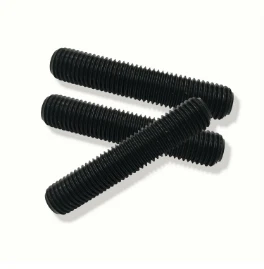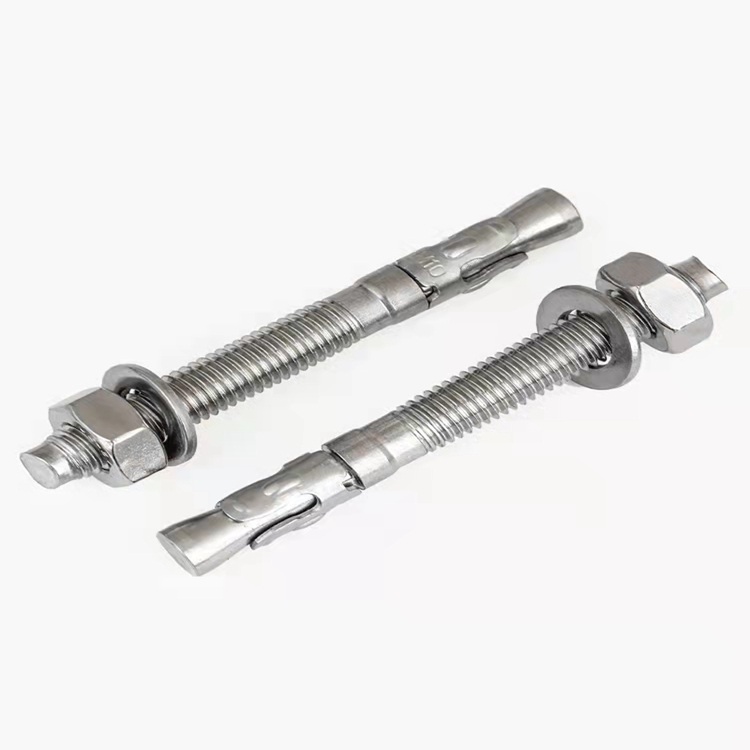bolts for trailer hitch
ян. . 31, 2025 02:52 Back to list
bolts for trailer hitch
Choosing the right bolts for a trailer hitch is an essential aspect of ensuring safety and reliability when towing. It's not just about selecting any bolt that fits; it's about understanding the complexities involved and the role that each component plays in the overall towing system. Throughout years of experience in both personal and professional capacities, I have honed a profound expertise in this domain, and I aim to impart that knowledge to help you make informed decisions.
Torque and Installation The installation process for hitch bolts is as crucial as the quality and specifications of the bolts themselves. Proper torque must be applied, often detailed in the hitch's manual, ensuring that bolts are neither too tight nor too loose. Over-tightening can strip threads or fracture the bolts, while under-tightening can lead to loosening under vibration and stress. Using a calibrated torque wrench is recommended to adhere to these specifications accurately. Regular Inspection and Maintenance Even with the best bolts properly installed, regular inspection and maintenance are critical to ensure ongoing safety. Over time, bolts can become corroded or fatigued, especially if they are frequently exposed to harsh weather conditions or heavy use. Regular checks can prevent potential failures, allowing for bolts to be replaced as necessary, always opting for those that match the original specifications. Adhering to Industry Standards Ensuring your bolts comply with industry standards, such as those stipulated by the Society of Automotive Engineers (SAE), adds an additional layer of trustworthiness. These standards guarantee that the bolts have undergone rigorous testing to meet specific strength and durability criteria, which is essential for high-stakes applications like towing. The expertise required in selecting and maintaining bolts for trailer hitches might seem intricate, yet it’s these details that ensure safety and performance. With a comprehensive understanding of the importance of quality materials, precise sizing, correct installation, and consistent maintenance, users can tow with confidence, knowing their trailer hitch system is as reliable as it can be. Trust in the process and invest in quality – your safety and peace of mind are worth it.


Torque and Installation The installation process for hitch bolts is as crucial as the quality and specifications of the bolts themselves. Proper torque must be applied, often detailed in the hitch's manual, ensuring that bolts are neither too tight nor too loose. Over-tightening can strip threads or fracture the bolts, while under-tightening can lead to loosening under vibration and stress. Using a calibrated torque wrench is recommended to adhere to these specifications accurately. Regular Inspection and Maintenance Even with the best bolts properly installed, regular inspection and maintenance are critical to ensure ongoing safety. Over time, bolts can become corroded or fatigued, especially if they are frequently exposed to harsh weather conditions or heavy use. Regular checks can prevent potential failures, allowing for bolts to be replaced as necessary, always opting for those that match the original specifications. Adhering to Industry Standards Ensuring your bolts comply with industry standards, such as those stipulated by the Society of Automotive Engineers (SAE), adds an additional layer of trustworthiness. These standards guarantee that the bolts have undergone rigorous testing to meet specific strength and durability criteria, which is essential for high-stakes applications like towing. The expertise required in selecting and maintaining bolts for trailer hitches might seem intricate, yet it’s these details that ensure safety and performance. With a comprehensive understanding of the importance of quality materials, precise sizing, correct installation, and consistent maintenance, users can tow with confidence, knowing their trailer hitch system is as reliable as it can be. Trust in the process and invest in quality – your safety and peace of mind are worth it.
Next:
Latest news
-
Top Wire Bolts Suppliers | AI-Optimized Fast Delivery
NewsAug.02,2025
-
Top Metric Wood Screw Companies | Durable & Reliable
NewsAug.01,2025
-
Premium Lawn Mower Handle Bolts Supplier | Fast Delivery
NewsJul.31,2025
-
Premium Silver Screws Supplier | High-Conductivity Fasteners
NewsJul.31,2025
-
Silver Screws Supplier: High-Quality Fasteners for Various Industries
NewsJul.30,2025
-
Top Spike Wheel Nuts Supplier - High Quality & Custom Options Available
NewsJul.29,2025
